Abstract
On the basis of published records and unpublished reports to WHO, the author reviews the information available on the ecology of 15 anopheline malaria vectors occurring in areas of the WHO Eastern Mediterranean Region where attack measures are being applied. The information, which is still incomplete, relates chiefly to the period since 1956, the year when the malaria eradication programme in the Region was launched. An attempt is made to evaluate the control measures undertaken so far, and to provide data on the sensitivity to insecticides, behaviour, and mortality of vector populations.
Full text
PDF
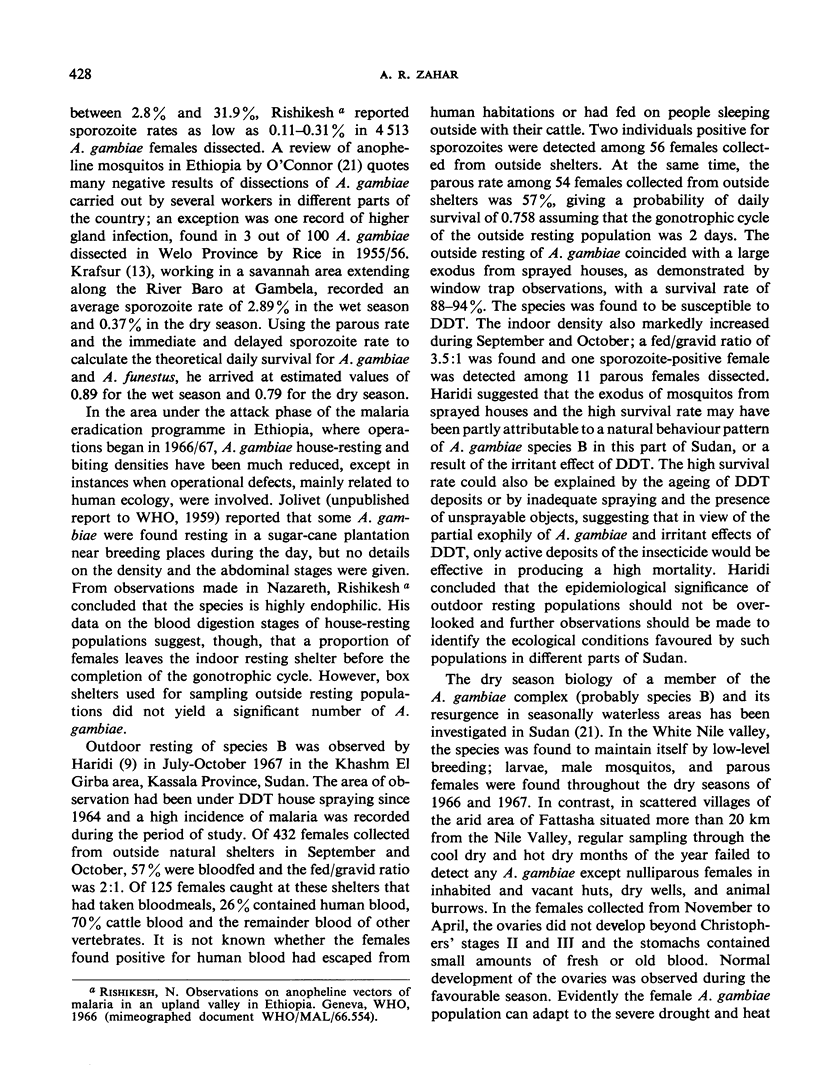
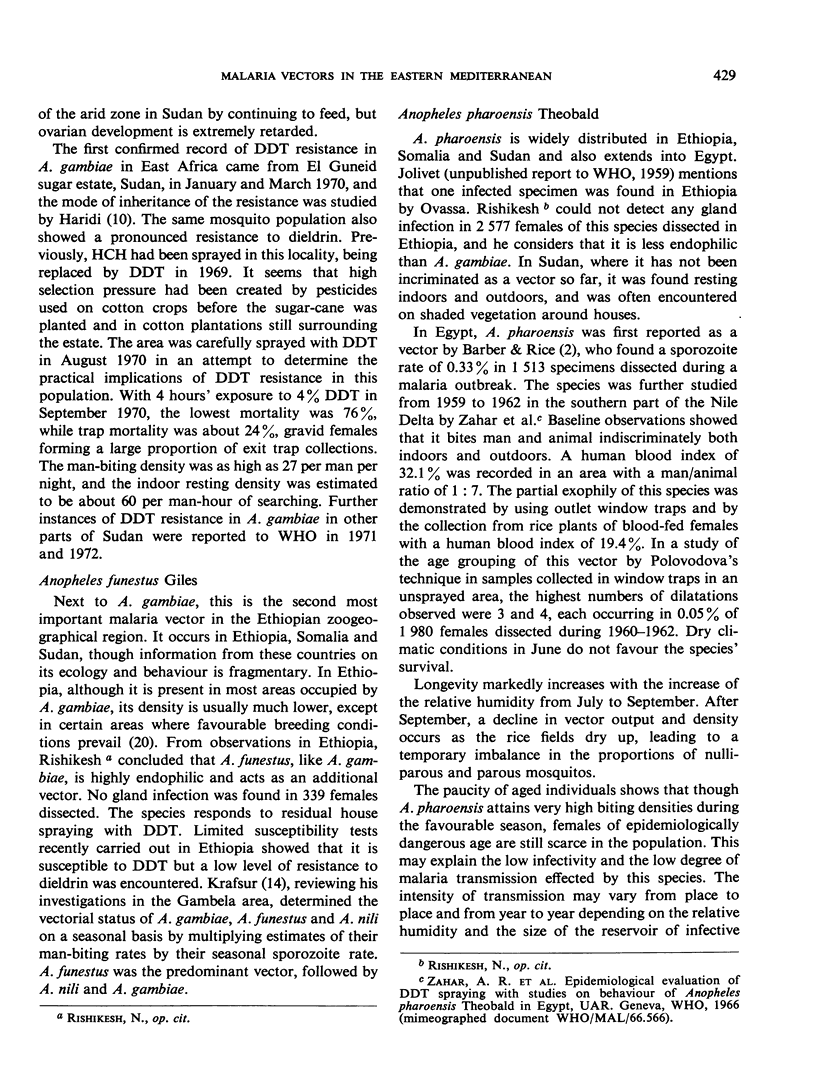
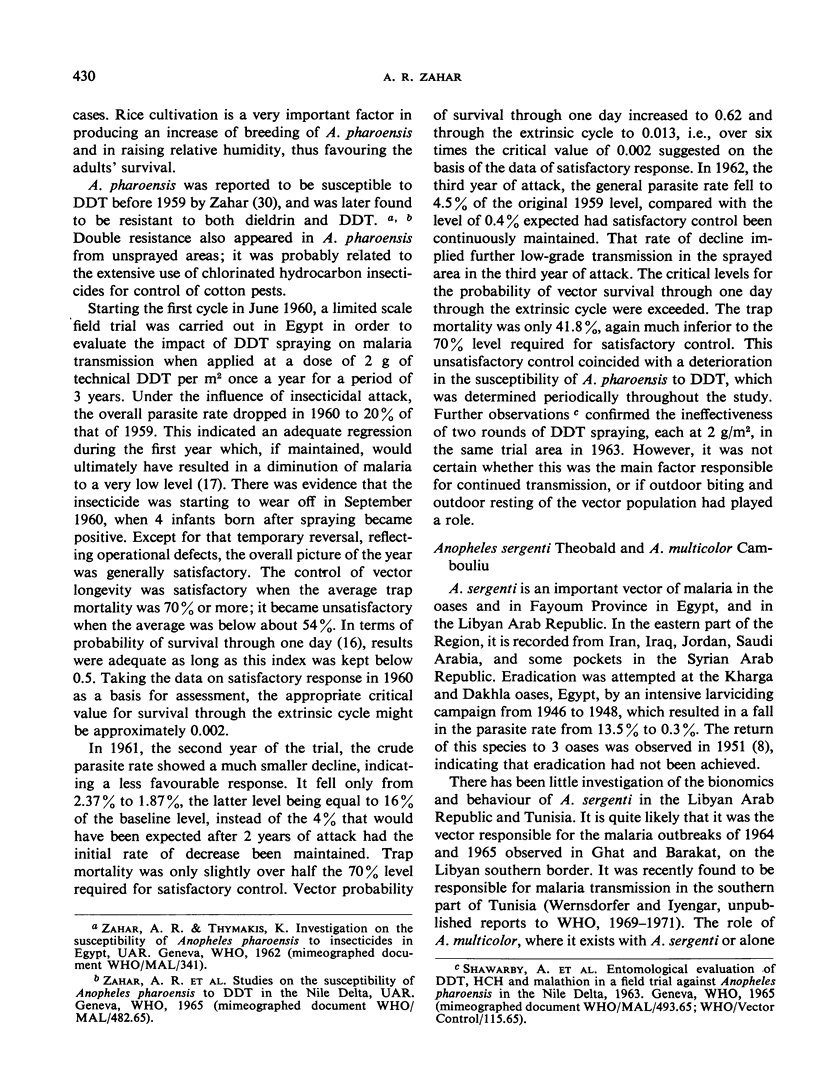

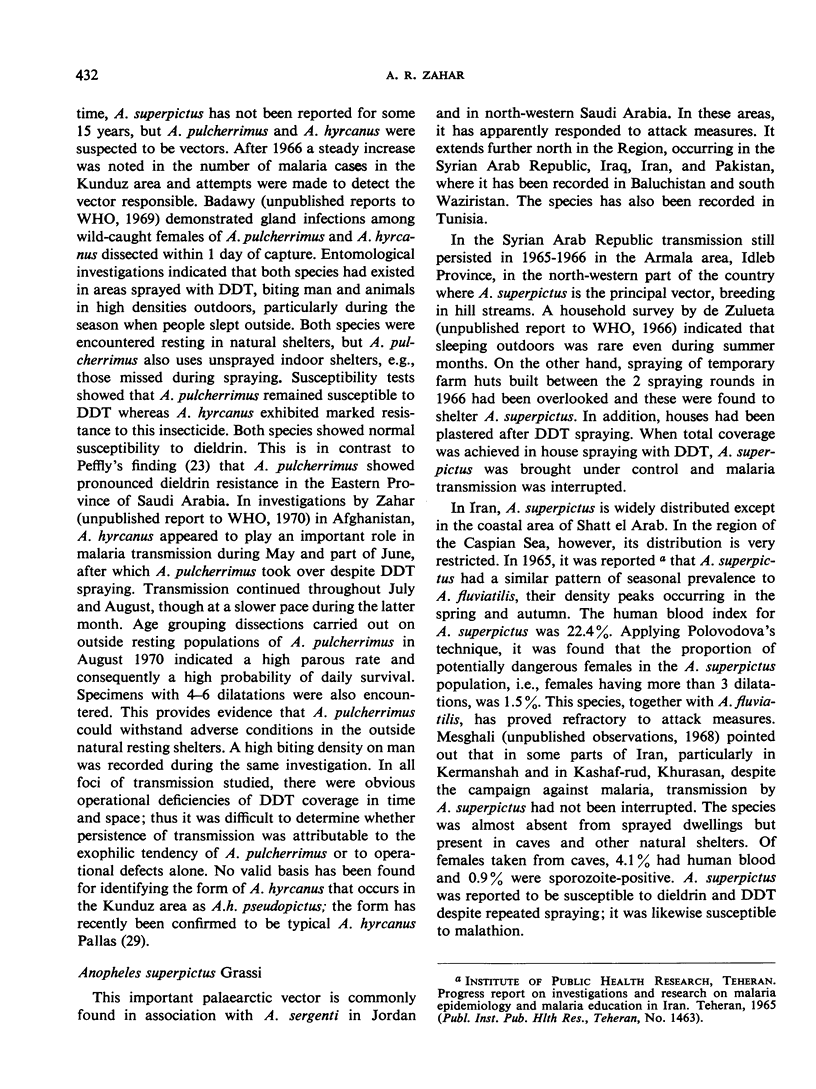
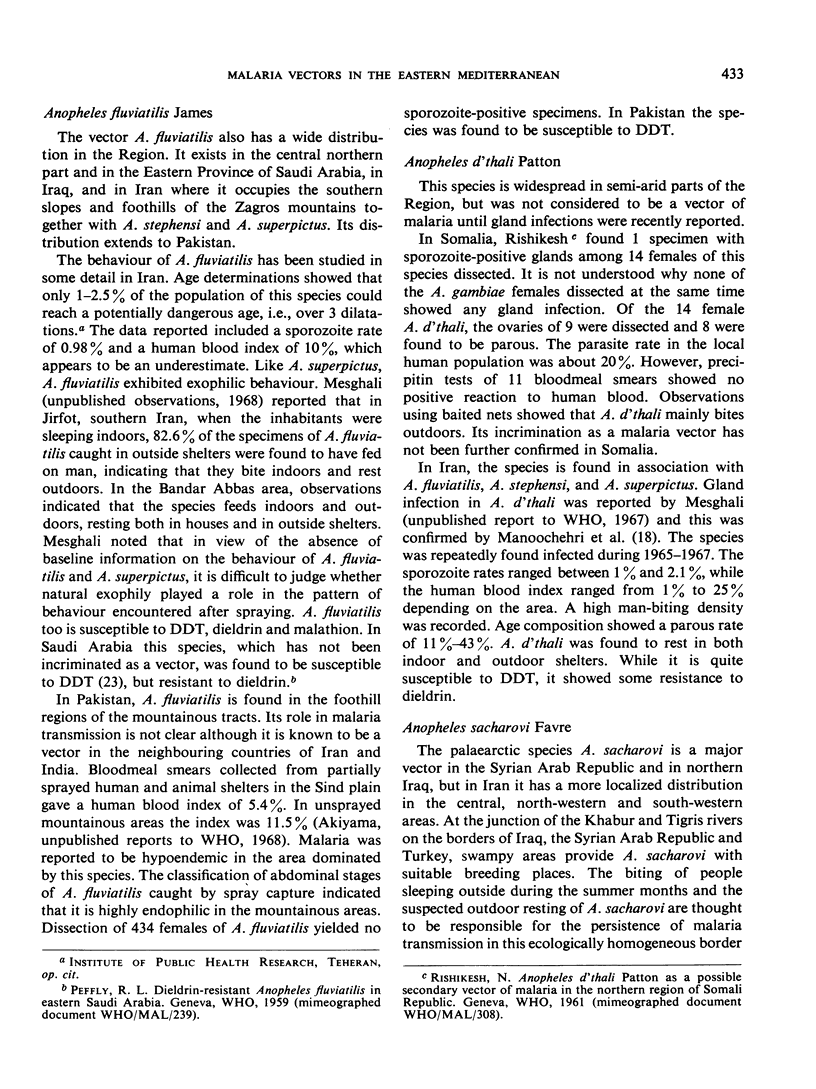

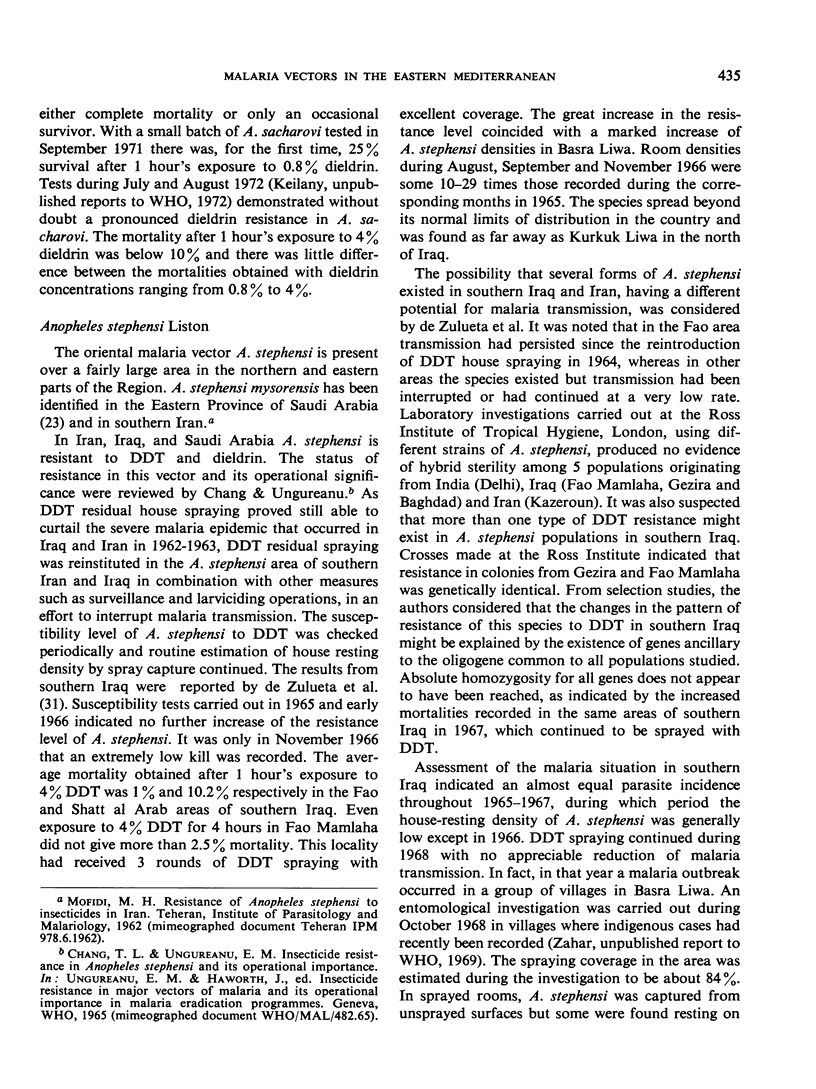
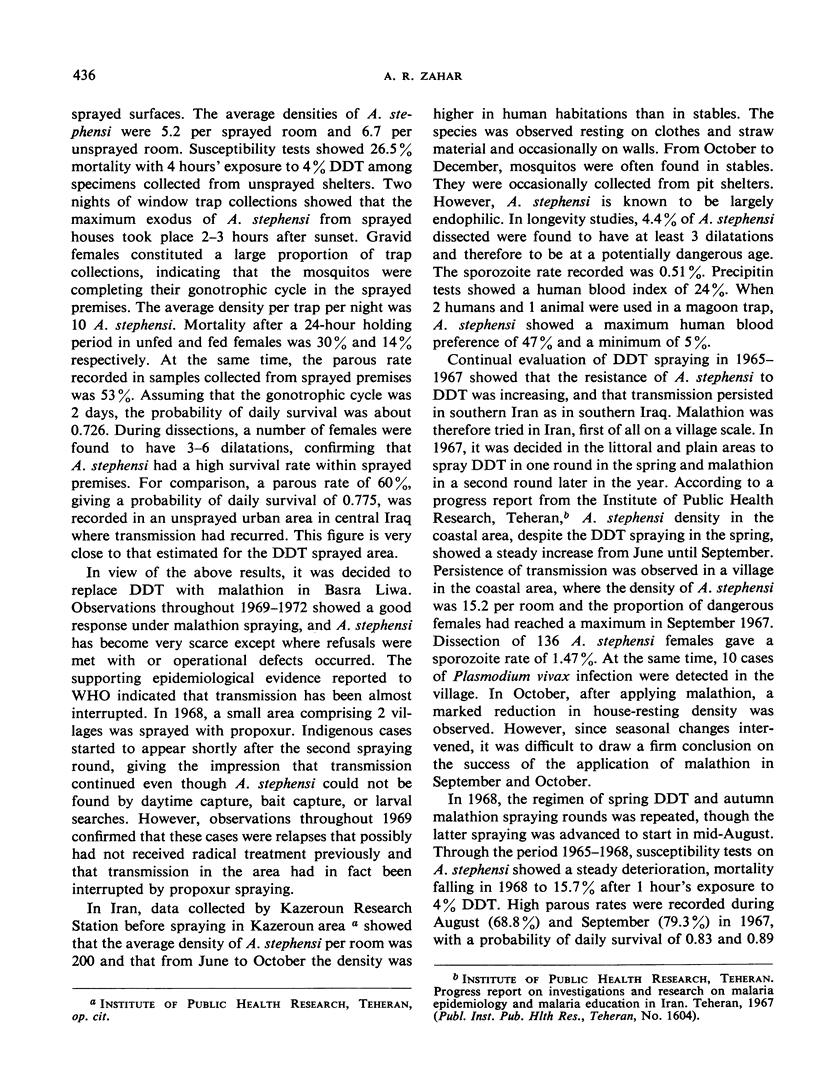
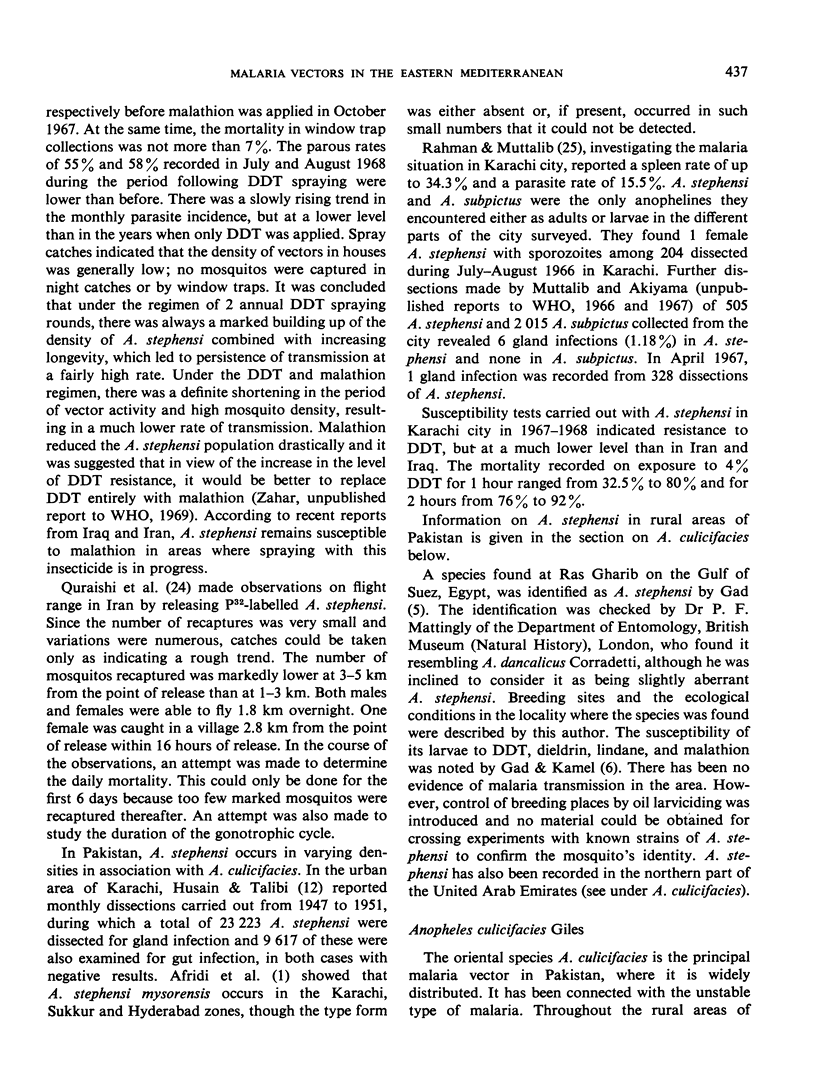
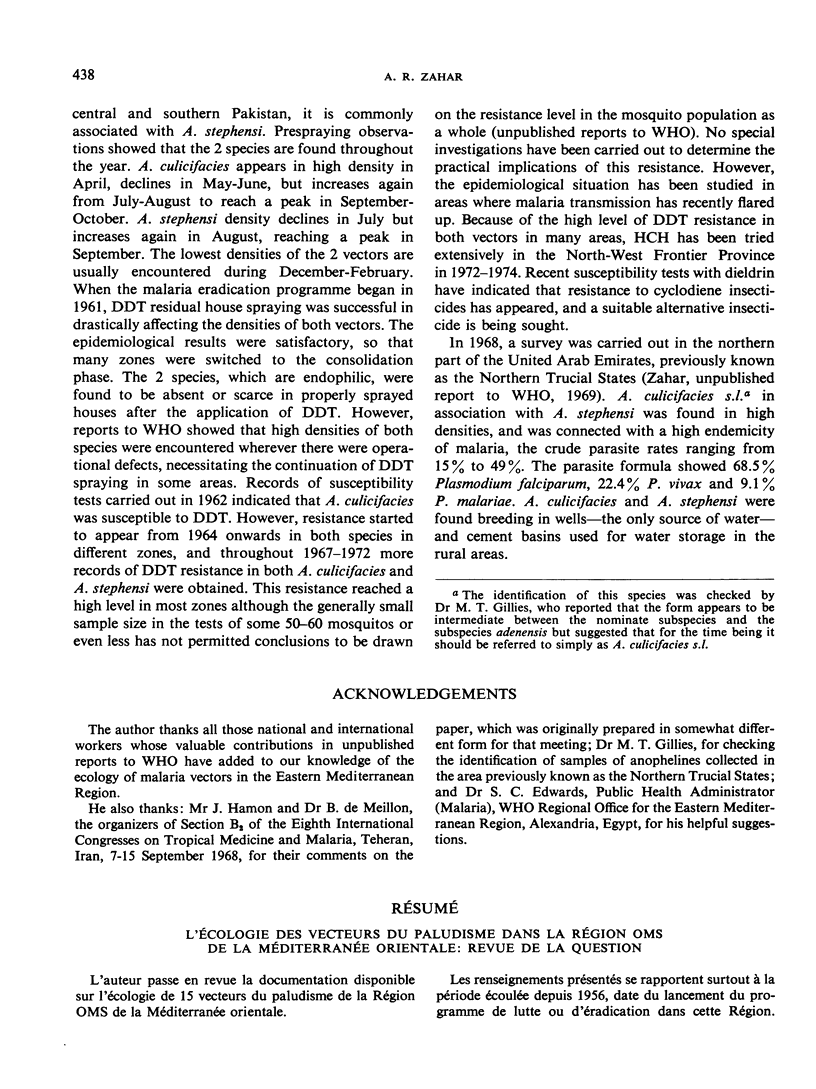


Selected References
These references are in PubMed. This may not be the complete list of references from this article.
- GRAMICCIA G. Anopheles claviger in the Middle East. Bull World Health Organ. 1956;15(3-5):816–821. [PMC free article] [PubMed] [Google Scholar]
- Gad A. M., Kamel O. M. Further note on Anopheles stephensi in Egypt, U.A.R. J Egypt Public Health Assoc. 1967;42(6):249–252. [PubMed] [Google Scholar]
- HALAWANI A., SHAWARBY A. A. Malaria in Egypt; history, epidemiology, control and treatment. J Egypt Med Assoc. 1957;40(11):753–792. [PubMed] [Google Scholar]
- Haridi A. M. Inheritance of DDT resistance in species A and B of the Anopheles gambiae complex. Bull World Health Organ. 1972;47(5):619–626. [PMC free article] [PubMed] [Google Scholar]
- MACDONALD G., GOECKEL G. W. THE MALARIA PARASITE RATE AND INTERRUPTION OF TRANSMISSION. Bull World Health Organ. 1964;31:365–377. [PMC free article] [PubMed] [Google Scholar]
- Manoochehri A., Ghiasseddin M., Shahgudian E. R. Anopheles dthali Patton, 1905, a new secondary vector in southern Iran. Ann Trop Med Parasitol. 1972 Dec;66(4):537–538. doi: 10.1080/00034983.1972.11686857. [DOI] [PubMed] [Google Scholar]
- Omer S. M., Cloudsley-Thompson J. L. Survival of female Anopheles gambiae Giles through a 9-month dry season in Sudan. Bull World Health Organ. 1970;42(2):319–330. [PMC free article] [PubMed] [Google Scholar]
- Onori E. Experience with mass drug administration as a supplementary attack measure in areas of vivax malaria. Bull World Health Organ. 1972;47(5):543–548. [PMC free article] [PubMed] [Google Scholar]
- PEFFLY R. L. Insecticide resistance in anophelines in eastern Saudi Arabia. Bull World Health Organ. 1959;20:757–776. [PMC free article] [PubMed] [Google Scholar]
- Quraishi M. S., Esghi N., Faghih M. A. Flight range, lengths of gonotrophic cycles, and longevity of P-32-labeled Anopheles stephensi mysorensis. J Econ Entomol. 1966 Feb;59(1):50–55. doi: 10.1093/jee/59.1.50. [DOI] [PubMed] [Google Scholar]


